Six things we learned from Slammed: The Eighties
- Published

The ups and downs of Welsh rugby are as pronounced as the geography of the country.
So it was probably inevitable the golden era of the Seventies would be followed by decline.
However, few imagined just how far the Wales team of the 1980s would fall.
From the envy of the world to a national embarrassment, the rugby team would embody the struggles of a country during a time of strikes and economic hardship.
The decade would still see fresh stars emerge, the Welsh Rugby Union's centenary, a first World Cup and a new threat emerge with the lure of money from rugby league.
A BBC rugby documentary series has returned to take on the most turbulent decade in Welsh rugby history - the eighties.
Here are six things we learned from Slammed: The Eighties which kicks off with Welsh rugby at it's zenith and cheated out of victory against the All Blacks.
New era
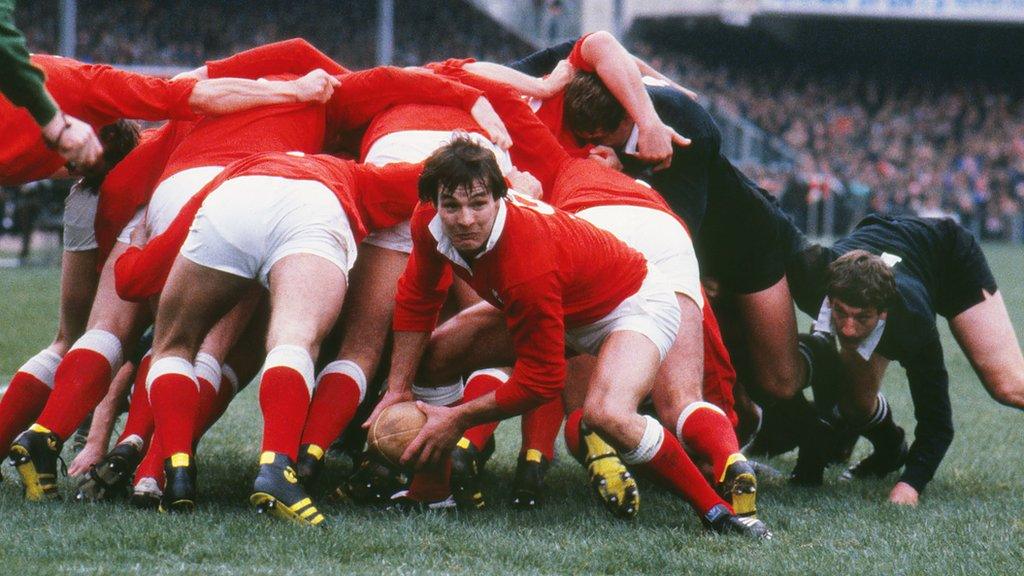
Terry Holmes had to fill the void left by Gareth Edwards
Seventies legends Gareth Edwards, Phil Bennett and Gerald Davies had retired before the decade was over but there was utter faith - arrogance? - that Max Boyce's mythical fly-half factory would keep churning out great number tens.
Heirs to the Edwards-Bennett throne were young Cardiff pair, Gareth Davies and scrum-half Terry Holmes.
"It was quite daunting following in the footsteps of perhaps the greatest player ever," admitted Holmes.
"There was only one Gareth Edwards so I could only get on in my own style and make the most of my abilities."
The pair looked on course to mastermind a first victory over New Zealand in 25 years only for Andy Haden to dive from a lineout and Geoff Wheel to concede the winning penalty two minutes from time.
Industrial action
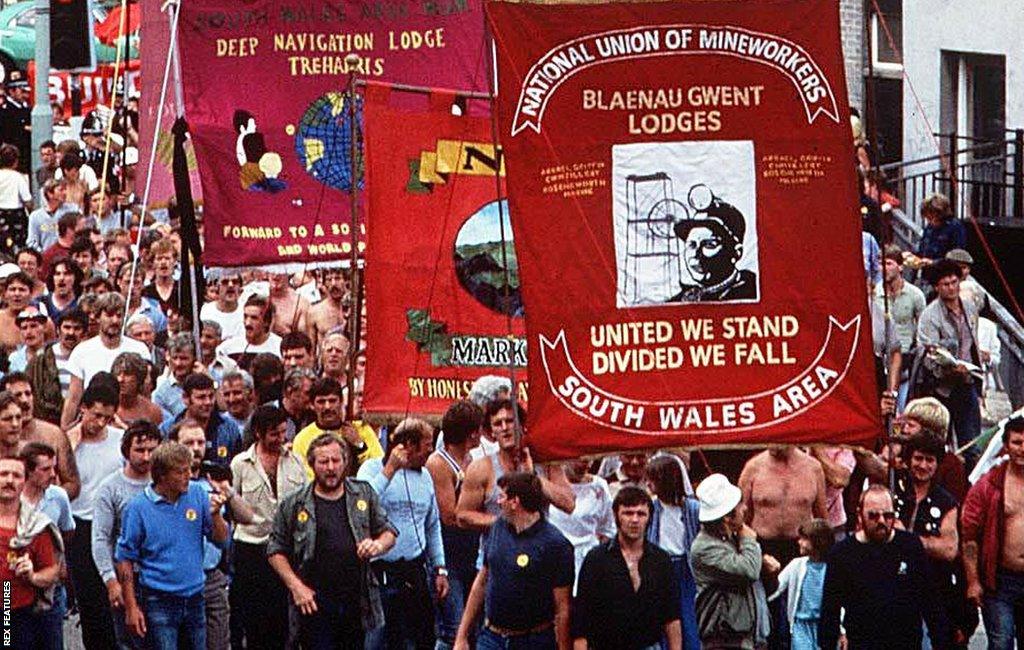
The decade was marked by industrial action across Wales and the UK
"It's uncanny that the industrial strife coincided with the decline of Welsh rugby," said rugby journalist Peter Jackson.
The decade began with thousands of steel workers striking, manufacturing jobs were in steady decline and then came the miner's strike of 1984-1985.
Sparked by the announcement, on St David's Day, that 20 pits in Wales employing 20,000 people were under threat of closure, the strike lasted 12 months, often turned violent and devastated communities.
Dirty Wales
The ire of Welsh rugby was inevitably turned on England but the 1980 clash at Twickenham - against the backdrop of the steel strike - would shock rugby and grab headlines for all the wrong reasons.
"There was a strange atmosphere, hostile, even before the game. The match was the dirtiest I ever played in," recalled fly-half Davies.
After a bloody opening 14 minutes, Paul Ringer was sent off for striking John Horton off the ball and Welsh rugby's reputation was tarnished.
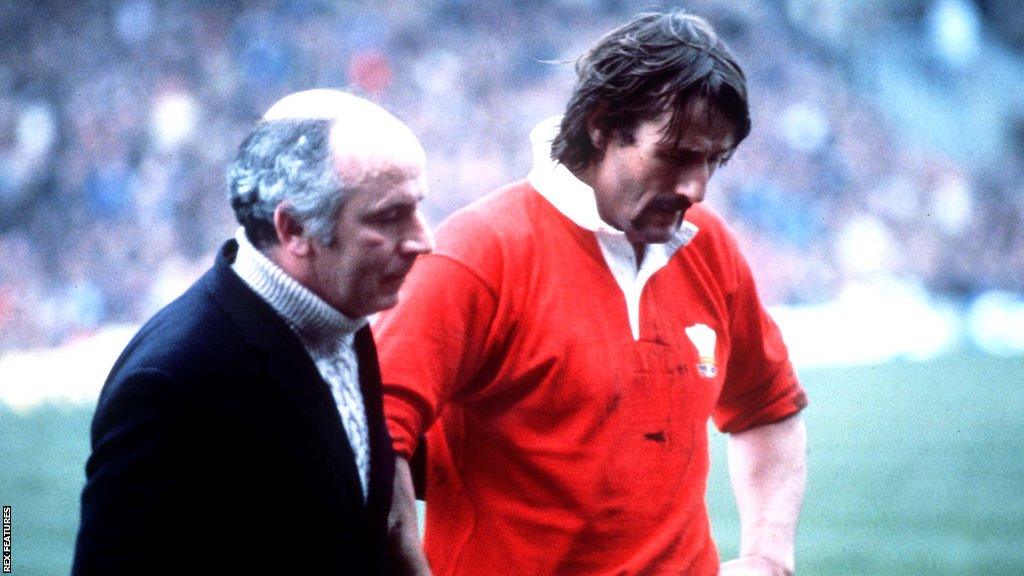
Paul Ringer became only the second Welshman ever to be sent off
Good times are over
A generation of Welsh rugby fans had grown up with success.
In fact Wales had not lost a Championship game at home since 1968.
So when they were hammered 34-18 by Scotland in Cardiff in 1982, an era had ended and the hard times had arrived.
"We weren't the Wales team people had been used to," said lock forward Robert Norster, who won his first cap that day.
"We battled hard, but when you've got a lot of changes being made at the same time, it's challenging at best.
"It wasn't the best game to make your debut and a lot of the boys had their throats cut."
The 'Big Five'
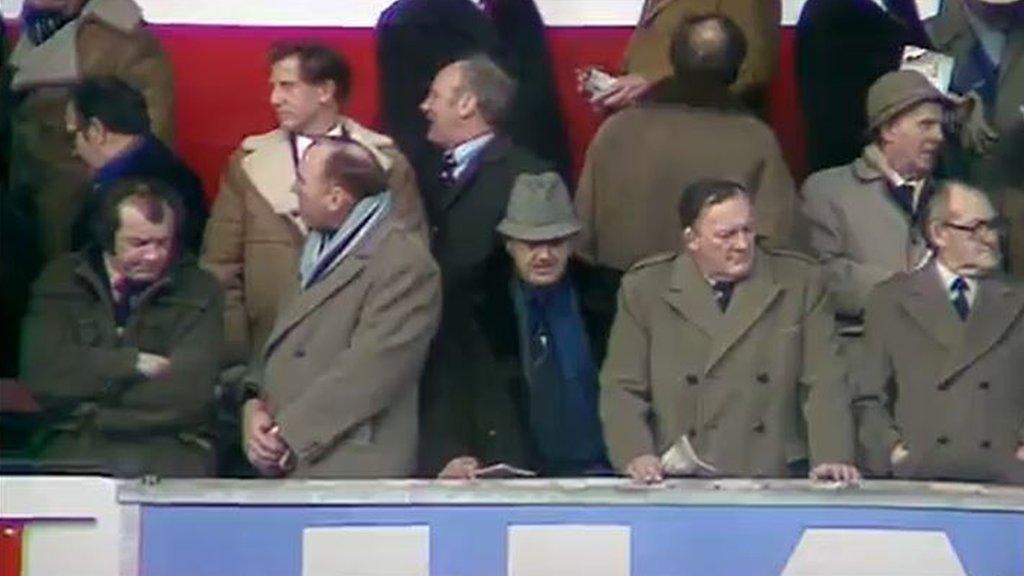
The five Welsh Rugby Union selectors were respected and feared
They were the most powerful men in Welsh rugby - the 'Big Five' - responsible for who played, where they played and when.
As the likes of Bobby Windsor, Charlie Faulkner and JJ Williams soon followed others into retirement, it was down to these influential men to rebuild.
But they could also be ruthless.
After a lacklustre 15-6 defeat at Murrayfield in 1981, the selectors axed seven players, including captain Steve Fenwick and the great JPR Williams, in what was described as "the day of the long knives". JPR would never play for Wales again.
"Back then there was no explanation, no phone call, you never got told why you were dropped, you just were" said Davies.
He would later suffer the added ignominy of seeing the anonymous A.N Other named at number ten instead of him.
Davies added: "I took that as a big insult and told the chairman of the selectors to count me out. And I quit."
A star is born
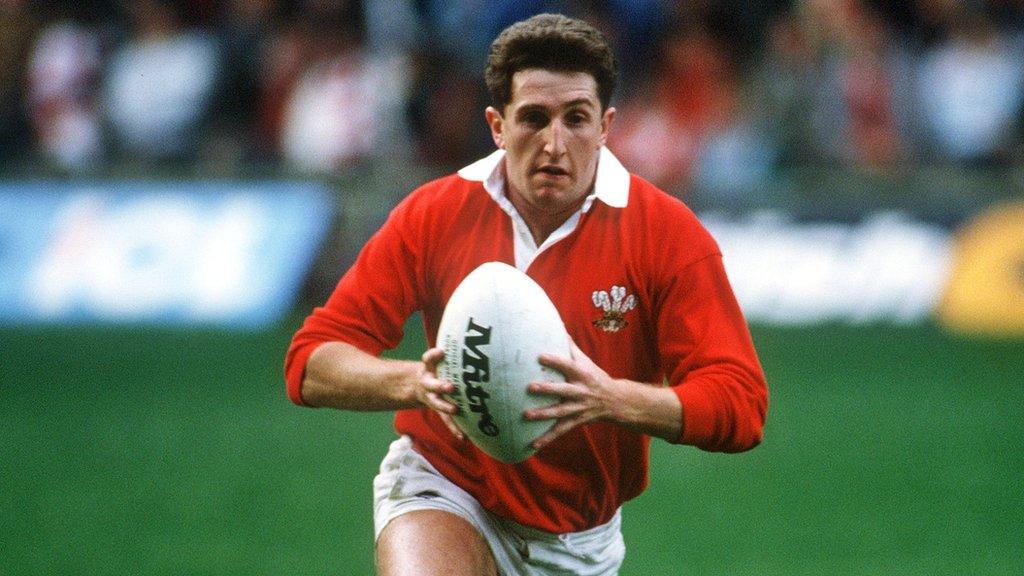
Jonathan Davies would play 37 times for Wales
Wales was crying out for a hero and when Gareth Davies walked away, he did so suggesting Wales look at a 22-year-old fly-half causing a stir with Neath.
Jonathan Davies had already been tipped by Phil Bennett as a future prospect but few could imagine such a dream Test debut.
He became the first Wales fly-half to score a try on his debut in more than 50 years to inspire victory over England. Good job then that he had spent time as a youngster practicing his signature.
"I'd grown up watching those players of the seventies, who were super-stars," he said.
"Following them was a dream come true, but you never expect your dream to turn into a nightmare.
"Losing for Wales is the worst feeling in the world."
You can watch the first part of Slammed: The Eighties on demand on BBC iPlayer.